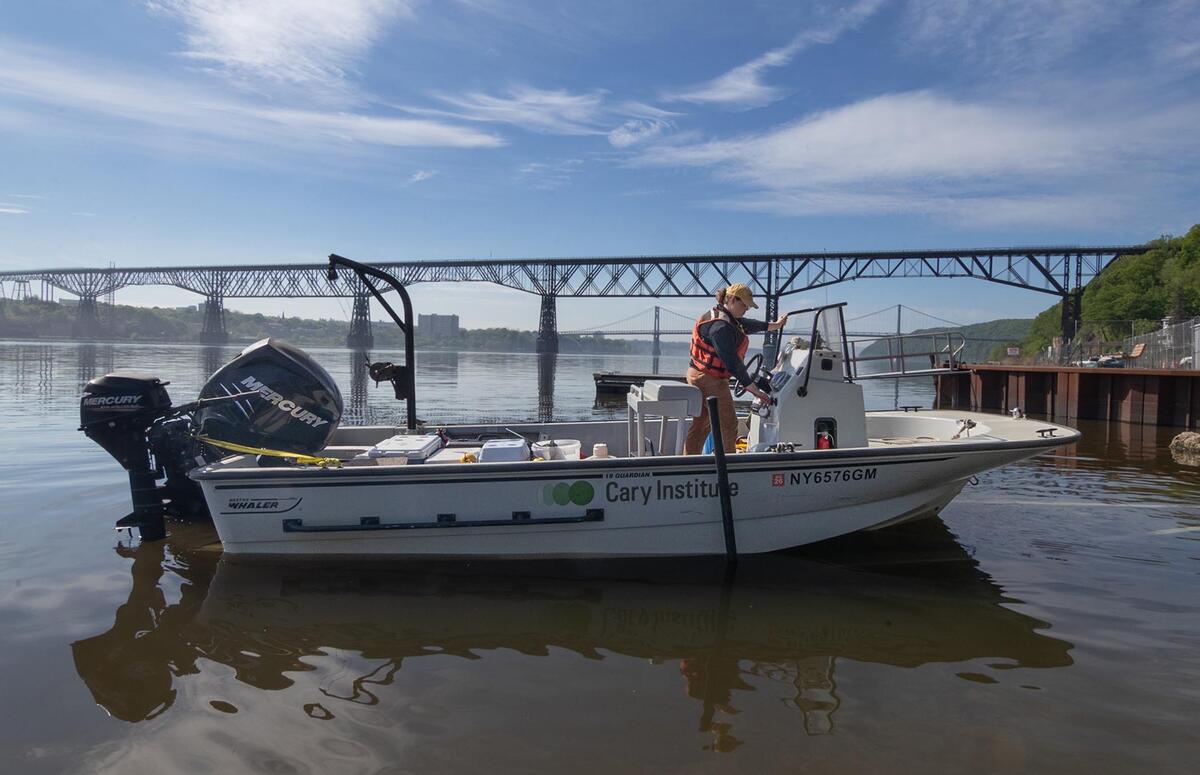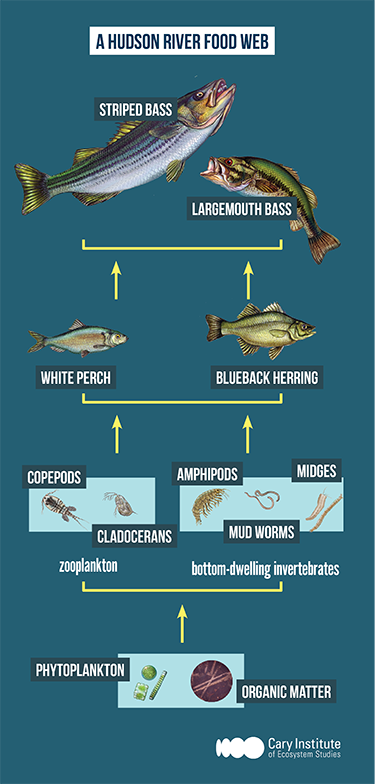
In partnership with the Hudson River Foundation, the Interim Lower Food Web Survey is tracking the health of the Hudson River. Data collected will ensure the river continues to be managed with the best possible science, supporting biodiversity, clean drinking water, sustainable fisheries, and recreational use.

Initiated in January of 2025, this three-year program is monitoring 150 miles of the Hudson River Estuary, from the mouth of the river in Lower Manhattan to Troy, NY. Our team collects data at each site on a monthly basis. Data includes:
- Phytoplankton biomass
- Types of zooplankton
- Bivalves (such as native pearly mussels and invasive zebra and quagga mussels) and other organisms living on the floor of the river
- Water clarity
- Water quality indicators, including alkalinity, organic carbon, phosphorus, and nitrogen
- water temperature, dissolved oxygen concentration, and conductivity
- Speed and direction of current

Plankton are a food resource for fish, such as striped bass, making them critical to supporting the river’s fisheries. Understanding trends in species at the base of the food web can help managers anticipate changes in fish abundance and adjust harvest levels accordingly.
Data from the survey may also help to reveal how changes in temperature, precipitation, and sea level due to climate change will alter Hudson ecosystems and water quality, with important implications for communities who rely on the river for drinking water and recreation.
In addition, the survey will keep tabs on invasive quagga and zebra mussels and their impacts on the river ecosystem, and may help provide early warning if other invasive species arrive.
This project builds on the pioneering work of Cary Institute’s long-term monitoring of the freshwater Hudson, and the information it collects will help sustain the history and imagine the future of ecosystem monitoring in this iconic river estuary.

